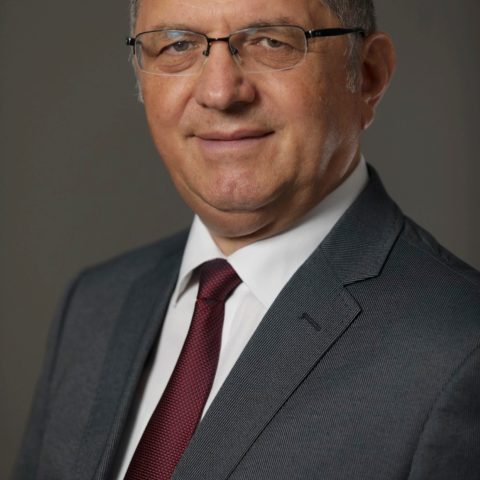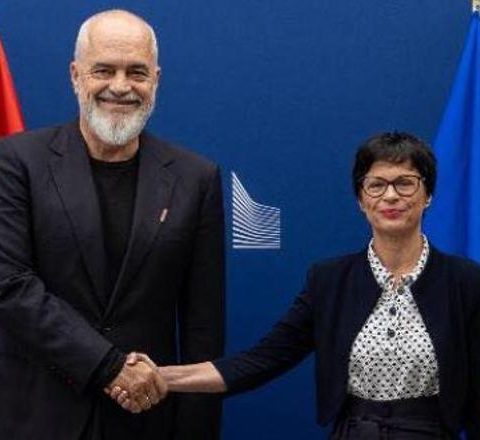By ANAR HUSEYNOV
Ambassador of the Republic of Azerbaijan
Azerbaijan has been a close partner for the EU for many years and has always tried to develop relations with EU member states in all areas. One of the main areas of development of relations between the parties was the energy sector, because Azerbaijan is a reliable partner and has a potential in this area.
Azerbaijan has been exporting natural gas to Europe since 2007 through the South Caucasus Pipeline, which runs from the “Shah Deniz” gas field in Azerbaijan to Turkey via Georgia. In 2020, the Trans Adriatic Pipeline (TAP) was completed, which connects Azerbaijan to Italy via Greece and Albania. The pipeline is part of the Southern Gas Corridor, a project that aims to transport gas from the Caspian region to Europe.
TAP plays a significant role in Azerbaijan’s energy exports and strengthens its position as one of the key energy suppliers to Europe. Azerbaijan has increased its natural gas exports to EU countries from 8.2 bcm in 2021 to 9.1 in 2022 and plans to reach the level of at least 20 bcm in 2027. The country has the potential to increase its exports in the future, as it is developing new gas fields and expanding its pipeline infrastructure. We do hope that Albania as a family member of TAP will soon benefit from this project not only as a transit country but also as natural gas recipient country. Currently, our relevant companies are in bilateral talks, including on the ground in Albania, to promote the issues of investments by Azerbaijan into gas infrastructure of Albania and supply of fossil fuels to contribute to energy security of the Latter.
Azerbaijan’s natural gas exports to Europe play an important role in diversifying Europe’s energy sources and reducing its dependence on Russian gas. The country is also part of the Southern Gas Corridor, a network of pipelines that brings Azerbaijani gas to Europe and increases the continent’s energy security.
In May 2022, EU leaders agreed to stop or reduce most of Russian oil and gas imports by the end of the year, as part of unprecedented sanctions they slapped on Moscow over the military action in Ukraine. European officials have been preparing for a potential complete shutdown of gas supplies from Russia in the wake of developments in Ukraine. Russia has for several decades been Europe’s most important source of natural gas, but there’s now a firm push by Brussels to reverse this. That’s why EU signed a new gas deal with Azerbaijan, as officials scramble to secure future supplies amid growing fears about a Russian cutoff. To this end, Azerbaijan has begun active negotiations with a number of European countries to contribute to the energy security of these countries.
European Commission President Ursula von der Leyen and Europe’s energy chief, Kadri Simson, visited Azerbaijan on 18 July 2022 to finalize the deal. In a statement, the President of Commission said Azerbaijan had committed to delivering at least 20 billion cubic meters to the EU annually by 2027. Also, Ursula von der Leyen named Azerbaijan a reliable partner in the field of energy and subsequently an agreement on strategic cooperation was signed between the parties.
Azerbaijan, in addition to supplying gas to Europe, began to develop the field of green energy. My country as a reliable fossils supplier will also assist its partners in the transition to clean energy sources, and, at the same time, strengthen its own economy. Within the framework of President Ilham Aliyev’s visit to Romania, the “Agreement between the governments of the Republic of Azerbaijan, Georgia, Romania and Hungary on strategic partnership in the field of development and transfer of green energy” was signed on December 17, 2022. The agreement essentially opens a new stage in Azerbaijani-EU energy cooperation, laying the foundation for a “green corridor” connecting the South Caucasus with Europe.
The main goal is to build wind generator, windmills, solar panels in order to reduce the need for gas in Azerbaijan and to increase the supply of gas to Europe. Also, in the future Azerbaijan will start delivering electricity to Europe through a cable that will be laid under the Black Sea.
The agreement signed between Azerbaijan, Georgia, Romania, and Hungary will boost cooperation in renewables, this agreement benefits both Azerbaijan and Europe in terms of the transition to clean energy. The project will now enter a feasibility study stage, which should be completed next year, and the subsea link in the Black Sea, which is said to cost the EU €2.3 billion, is planned to be commissioned in 2026.
In terms of its potential for renewable energy, Azerbaijan has significant potential in solar, wind, and hydro power. The country has favorable conditions for solar power generation, with an average of 2,000-2,200 hours of sunshine per year. Additionally, the country has a large number of suitable sites for wind power, primarily in the coastal regions. Azerbaijan also has significant potential for hydropower generation due to its mountainous terrain and the presence of rivers.
Azerbaijan’s renewable energy potential is more than 27 gigawatts of wind and solar power onshore and 157 gigawatts of wind power in the Azerbaijani sector of the Caspian Sea. Together with one of our country’s strategic investors, Azerbaijan plans to implement 3 gigawatts of wind and one gigawatts of solar power by 2027, 80 percent of which will be exported. The plan is to create an additional capacity of at least 6 gigawatts by 2037.
Azerbaijan has made some important policy advances in renewable energy, such as the adoption of a feed-in tariff for solar energy, the introduction of a green certificate system, and the introduction of a renewable energy fund. In addition, the country has implemented a number of renewable energy projects, such as the construction of a 10 MW solar plant and a 10 MW wind farm. Azerbaijan has also announced plans to install 700 MW of solar capacity, 1,000 MW of wind capacity, and 1,000 MW of hydro capacity by 2025. The country has also set an ambitious target of achieving 30% of renewable energy in energy mix by 2030.
In terms of local needs, Azerbaijan has a growing demand for electricity due to population growth and economic development. The country has been taking steps to meet its growing energy demands through increased domestic production and energy efficiency measures. While the country has been exporting electricity primarily from traditional power sources in recent years, there is potential for it to increase its renewable energy exports in the future as it continues to develop its renewable energy infrastructure. So, in the years to come Azerbaijan will also be reliable partner of Europe in the area of exports of electric energy sourced from renewables.









